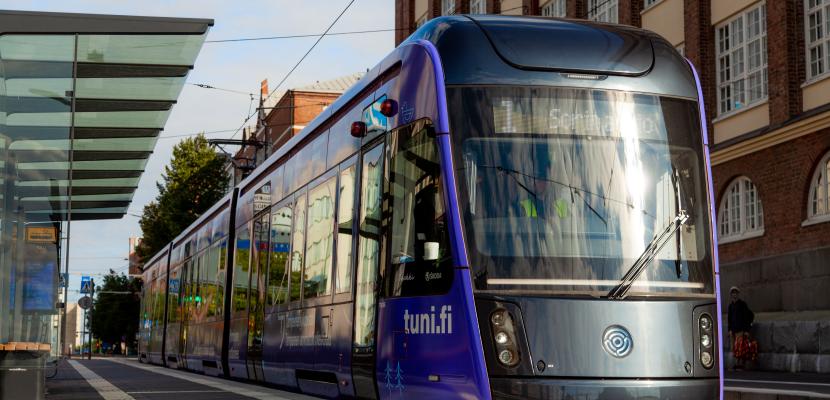
Multi-stakeholder collaboration within logistics innovation ecosystem facilitates carbon-neutrality

About this good practice
TAMK helps City of Tampere to reach its CO2 neutrality goals through city logistics and last mile innovation ecosystem with Lyyli Living Lab.
Resources needed
Resources depend on physical context of sustainable mobility Living Lab.
Living Lab environment was build-in Lyyli-tramcar and the City of Tampere tram system in years 2021-2022 with a rough budget of 250.000€. The budget of Lyyli Living Lab operations in period of 2023–2025 is about 750.000€.
Evidence of success
- Innovations tested within the Lyyli Living Lab provide e.g. training of new tram operations via simulation environment installed in Lyyli.
- Lyyli Living Lab demonstrates how to connect last mile services to Tram information systems as part of travel chain
- Passenger travel innovations can be implemented to cargo logistics helping to achieve last mile sustainability targets.
- Continued access to cutting-edge technologies such as lidar technology trial installations for passengers’ safety.
Potential for learning or transfer
The platform provides an unique opportunities for learning and innovation with following aspects:
Learning Opportunities:
- Experiment-Driven Learning: The Lyyli tram car becomes a classroom. Students, engineers, and innovators learn by doing. Experimentation fosters adaptability, problem-solving, and resilience.
Research Potential:
- Data Collection: The Lyyli Living Lab generates valuable data. Researchers analyze passenger behavior, service usage, and technology performance.
- Innovation Studies: Investigating new services, technologies, and their impact on urban mobility provides rich research material.
Innovation Pathways:
- Collaborative Innovation: Industry players collaborate, sparking creativity. New ideas emerge, leading to breakthroughs.
- Iterative Prototyping: Innovators iterate on tram-based solutions. Failures become stepping stones toward success.
